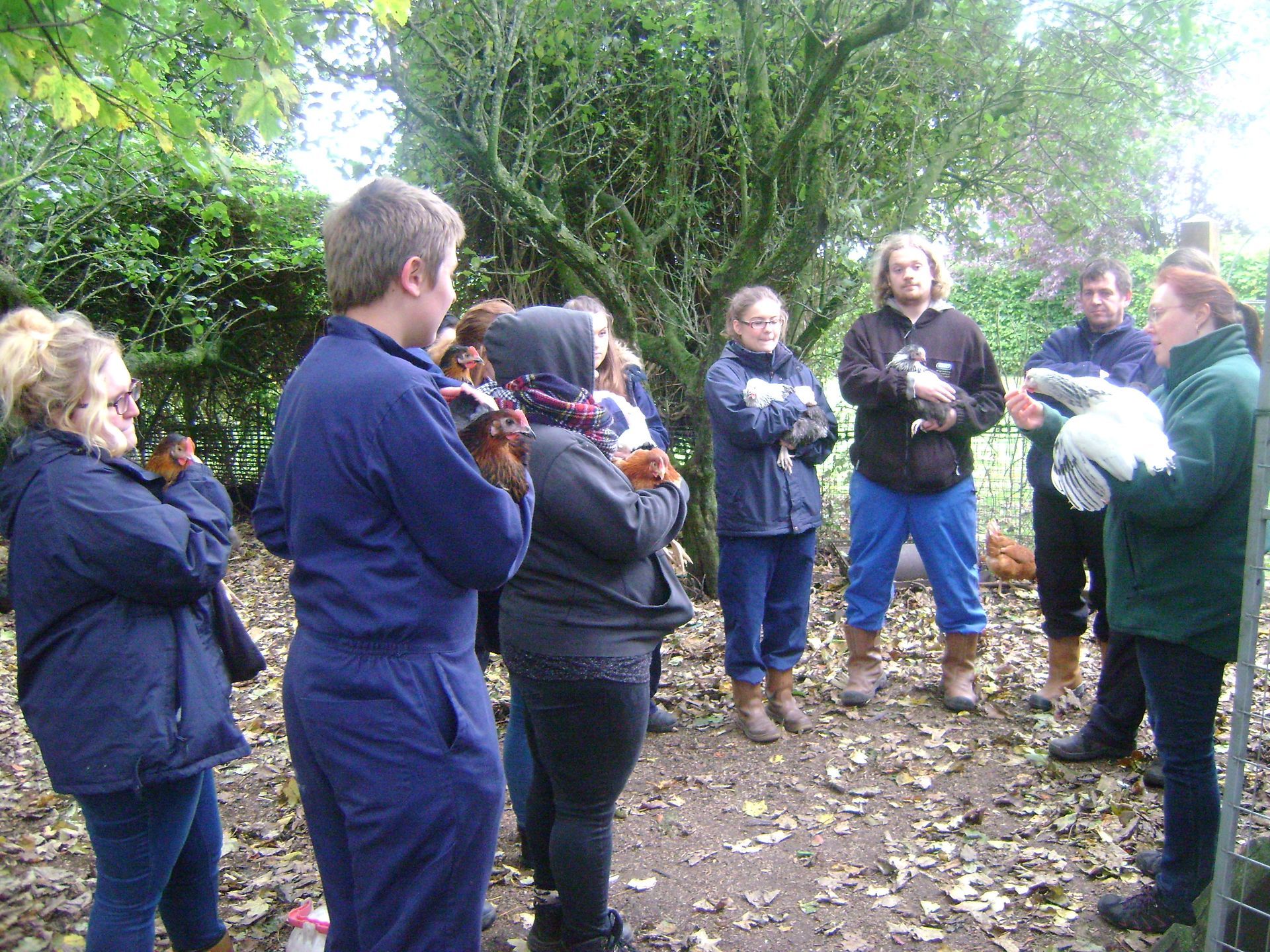Guide to Keeping Chickens
Preparing for your hens
Free-Range or Run?
Deciding whether to keep your hens free-range or in a run will depend on your space, lifestyle, and how secure your garden is.
- Free-range hens sleep in a coop at night but are free to roam during the day. This is ideal if you have a secure, predator-proof area.
- Runs are enclosed spaces attached to or surrounding the coop. While less natural than free-range, a well-sized and enriched run can keep hens happy and safe from predators—especially useful in urban or suburban areas.
Hen Houses
Hen houses come in a range of styles and sizes:
- Some have integral or detachable runs, while others are designed for use inside a larger enclosure or for free-ranging hens.
- Wooden coops are traditional, but modern plastic houses are becoming popular for their durability and ease of cleaning.
Choose a design that suits the number of hens you plan to keep and ensure it's well-ventilated, secure, and easy to access for cleaning and egg collection.
Bedding
We recommend using wood shavings for coop flooring. Although they can be more expensive than straw, they tend to last longer, making the overall cost similar.
Bedding should be changed every 1–2 weeks, or sooner if it becomes wet or begins to smell.
We mix Red Mite Powder
into the fresh bedding to help keep the coop free from mites and other pests.
Both wood shavings
and straw
are available to purchase from our shop.
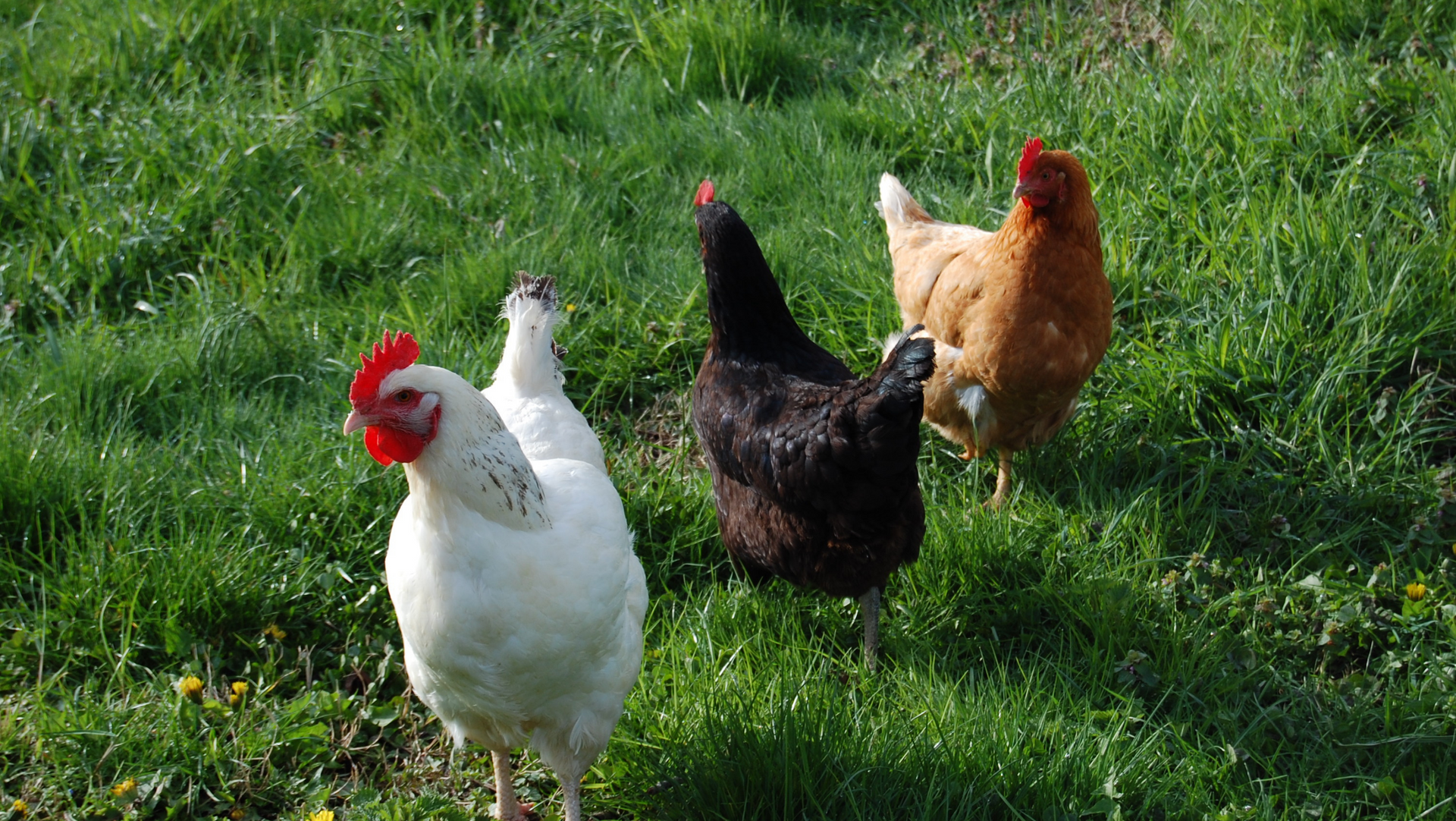
Choosing your hens
Egg-laying hens are typically bought at point of lay, between 16–20 weeks old. Most will begin laying between 20–30 weeks, depending on the breed:
- Hybrid hens tend to start laying earlier and produce more eggs in their first year than pure breeds.
- Buying at point of lay means you get the full benefit of a hen’s most productive laying years.
It's worth investing in healthy, good-quality hens. Feeding and caring for older hens that don’t lay can become frustrating and expensive over time.
If you’re considering ex-battery hens, be aware they may take longer to settle into a mixed flock, especially if they’ve never encountered other breeds before, and they may have health issues that need addressing. Our hens are raised in sheds with a variety of breeds, so they tend to integrate well into new flocks.
Collecting your hens
You're welcome to collect your hens during our opening hours at Durham Hens.
- We provide cardboard transport boxes for £2 each (holds up to 4 hens).
- We also offer wing clipping for £0.50 per hen—a painless and stress-free procedure that helps prevent hens from flying over fences. This option is available at checkout when purchasing online.
- When transporting hens, keep your car cool, as they can overheat quickly.
- Food and water are not needed during travel for short journeys.
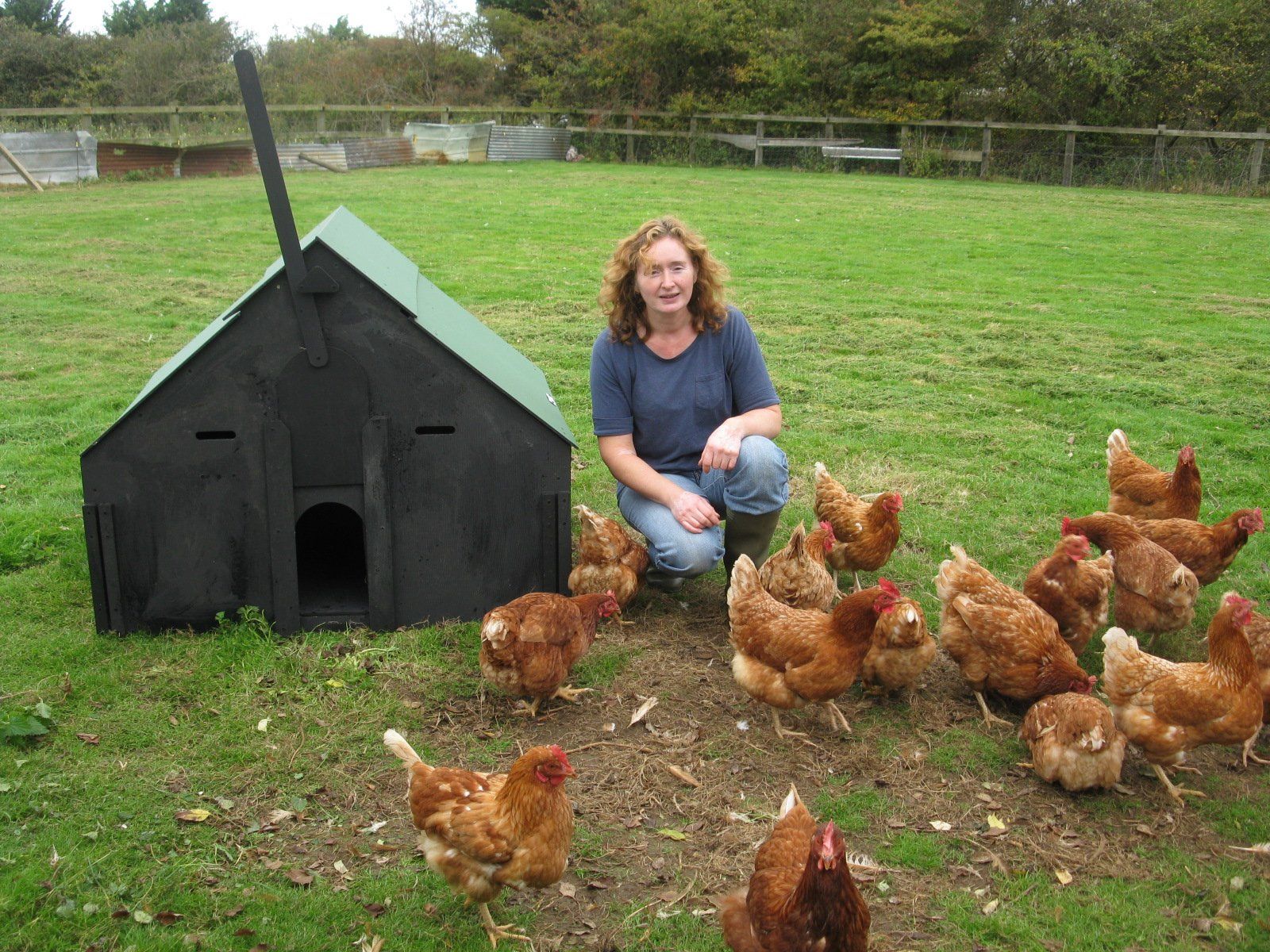
Caring for your hens
Feeding Your Hens
Proper feeding is essential for healthy hens and consistent egg production. Here’s what you need to know to keep your flock well-fed all year round.
Main Feed: Layers Pellets or Mash
- Hens should have constant access to layers pellets or layers mash. They won’t overeat these feeds, so there's no need to limit their intake. Expect each hen to eat around 1 kg per week.
- Using a high-quality feed makes a big difference — it leads to healthier birds and better-tasting, more prolific eggs.
- Never restrict their main feed, as this can cause a drop in egg production.
Summer:
- Layers pellets or mash are sufficient during warm months.
- Free-range hens will supplement their diet naturally by foraging.
- You can offer small amounts of mixed corn as a treat, but keep it minimal.
Winter:
- In cold weather, mix layers pellets/mash with mixed corn in roughly a 4:1 ratio (four parts pellets to one part corn).
- Corn is high in calories, helping hens stay warm and maintain egg production.
- Avoid overfeeding corn — too much can cause hens to gain weight and stop laying.
Fresh Water:
- Provide clean, fresh water at all times.
- Allow at least 1/3 litre per hen per day, more during hot weather.
Poultry Grit
- Hens need mixed poultry grit to aid digestion and support eggshell production.
- Grit contains:
- Flint grit – helps grind down food in the gizzard.
- Oyster shell – provides essential calcium for strong eggshells.
- Offer grit in a separate cup so hens can take what they need.
Feeders & Drinkers
- We recommend using indoor feeders to keep food dry and safe from vermin, especially overnight.
- Drinkers can be kept either indoors or outdoors, but keeping them inside reduces the risk of contamination from wild birds or other animals.
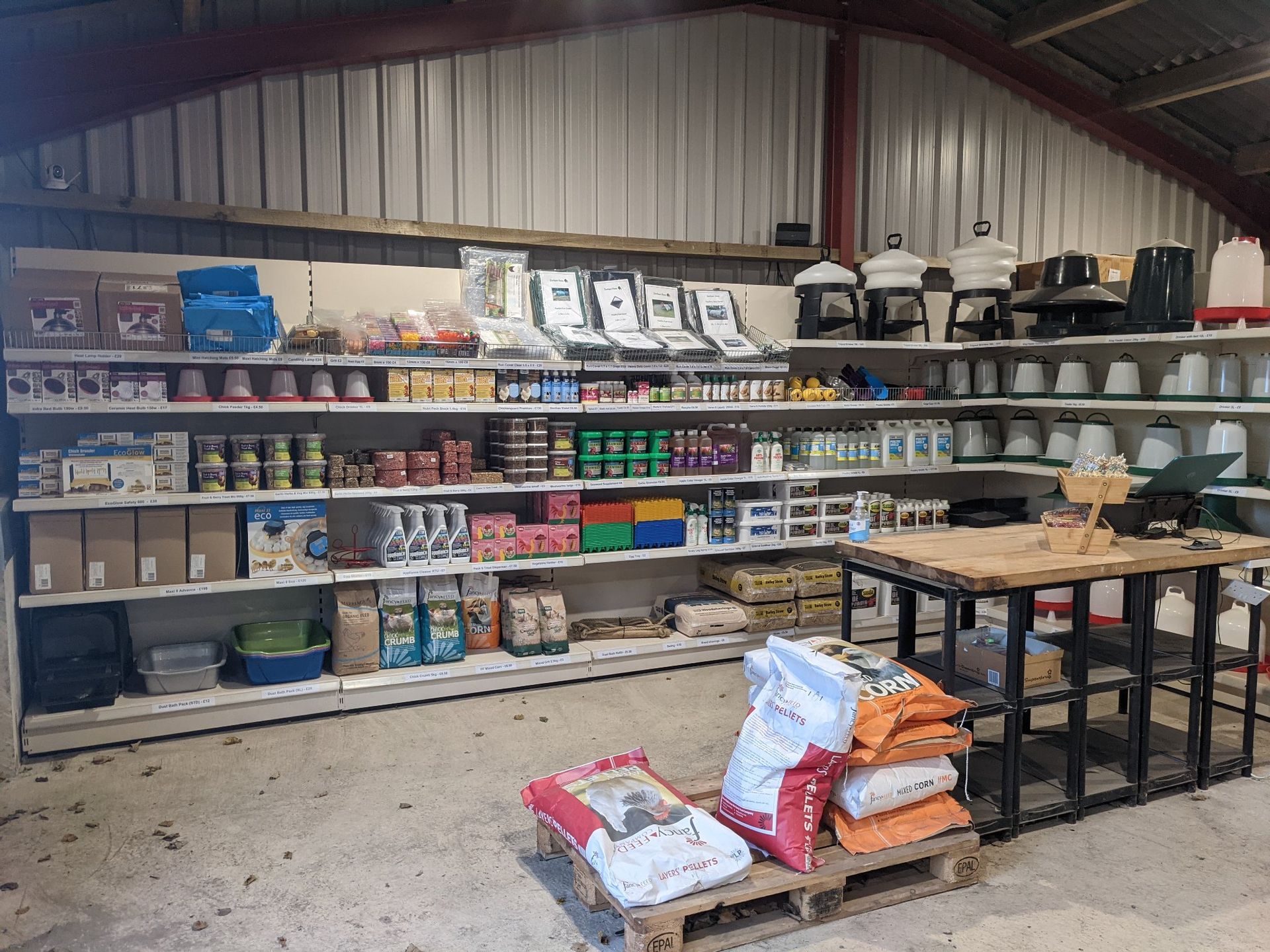
Health Matters
Keeping your hens healthy ensures a happy flock and reliable egg production. Here are the essentials to help you manage common health issues and know when to seek help.
All of our hens are vaccinated against most serious poultry diseases, with protection lasting for their entire lives. This provides peace of mind and a strong foundation for long-term flock health.
Worming
Worming
Hens need regular worming to stay healthy and productive.
- Natural preventatives include:
- However, if your hens are already infected, the only licensed treatment in the UK is Flubenvet, which vets will prescribe.
It's good practice to worm your flock every 3–6 months, or more frequently if you notice signs such as weight loss, reduced laying, or loose droppings.
Fleas, Lice & Mites
Fleas, Lice & Mites
External parasites can cause discomfort and reduce egg production.
- Use Red Mite Powder:
- In Dust Baths, which hens will naturally use to clean themselves.
- Directly on the hens, focusing under the wings and around the vent (bottom area).
- Regular checks and preventive treatment will help keep parasites under control.
Moulting
Hens typically moult once a year, usually in late summer or early autumn.
- They may look scruffy or patchy as they lose old feathers and grow new ones.
- Most hens stop laying temporarily during a moult.
- This is a normal and healthy process. You can support your hens by adding Poultry Spice or Enhance supplements to their feed to speed up feather regrowth.
When to Seek Help
If you're worried about a hen’s behaviour, appearance, or egg-laying, early action is key.
- Visit our ‘Hen Health’ page for advice and common symptoms.
- Don’t hesitate to consult a vet—many poultry health issues can be treated if caught early.
Cleaning the Coop
Keeping your coop clean is essential for your hens’ health and wellbeing. Alongside regular bedding changes, a deep clean should be done several times a year.
How Often to Clean
- Bedding should be replaced every 1–2 weeks, or sooner if it becomes damp or smelly.
- A thorough deep clean of the entire coop should be carried out about four times a year—once per season is a good routine.
Deep Cleaning Tips
For a deep clean:
- Remove all bedding and scrape out droppings.
- Wash down all surfaces, including perches, nest boxes, and corners where pests may hide.
- Disinfect using a poultry-safe cleaner like Barrier V1, a very effective, non-toxic, organic cleaner and disinfectant.
Let the coop dry thoroughly before adding fresh bedding and allowing the hens back in.
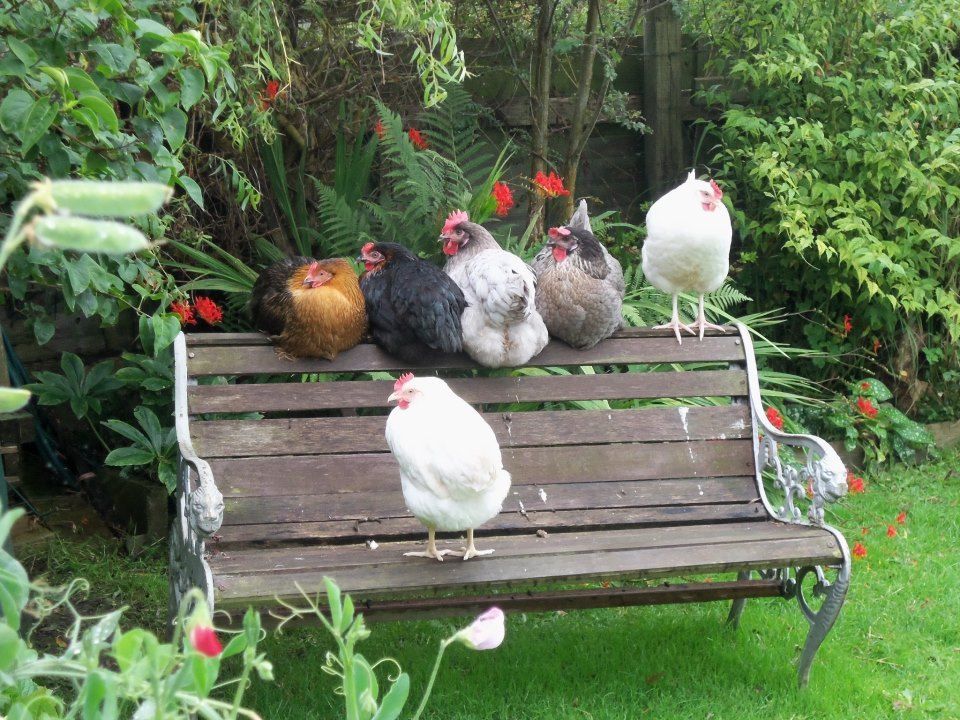
Hens in Winter
Water in Freezing Weather
Managing the Run
Hens are surprisingly hardy animals and will cope well with winter weather—as long as you make a few seasonal adjustments to their care. Unless you're keeping exotic or very delicate breeds, your hens will do just fine with some extra attention to food, water, shelter, and their run.
Feeding in Winter
Feeding in Winter
In colder months, hens use more energy just to stay warm. If their diet stays the same as in summer, they may stop laying—not because of the cold itself, but because all their calories go toward maintaining body heat.
- Supplement their usual feed (layers pellets or mash) with about 20% mixed corn or maize. These are high in calories and help keep hens warm, which supports winter egg production.
- Layers mash is often preferred in winter because it can be mixed with warm water to make a comforting, porridge-like meal.
- Poultry Spice is a traditional winter supplement that supports general health and encourages laying.
Water in Freezing Weather
Fresh, unfrozen water is just as important in winter as in summer.
- Check drinkers regularly to make sure they haven’t frozen.
- Consider using a heated drinker pad or placing water in a sheltered area to prevent freezing.
- Don’t use metal drinkers outside in freezing temperatures, as they can become icy and difficult for hens to drink from.
Keeping the Coop Warm and Dry
Hens don’t need artificial heating, but they do need a dry, well-ventilated environment.
- Add extra bedding to insulate the floor—this helps trap warmth and provides a dry, comfortable base.
- We recommend mixing BioDri powder with wood shavings. BioDri is a natural sanitiser and drying agent that helps keep bedding clean and dry.
- For coops with metal floors, place several layers of newspaper underneath the bedding to provide insulation.
- Never block ventilation—even in freezing weather. Moist, stale air is far worse for hens than cold, fresh air and can lead to respiratory issues.
Managing the Run
Keeping the run dry and comfortable is important for your hens' health and happiness.
- Cover the run to keep out rain and snow where possible.
- If there's snow on the ground, your hens may refuse to go outside. Lay down straw or dry bedding to encourage activity and give them something to scratch at.
- Staying active helps keep hens warm and mentally stimulated.
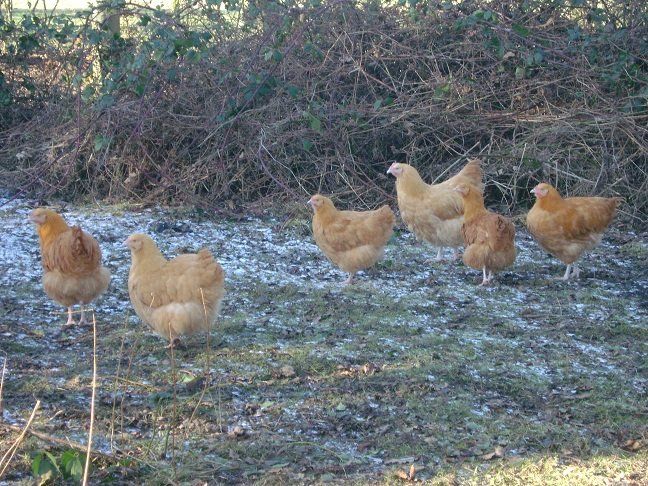
Flock Dynamics & Safety
Keeping a happy, safe flock means understanding hen behaviour, protecting them from predators, and introducing new birds carefully. Here's what to know:
Pecking Order
Hens are social animals and naturally establish a "pecking order"—a hierarchy within the flock.
- Minor squabbles are normal, especially when new hens are introduced.
- However, if feather pecking becomes aggressive or blood is drawn, take action:
- Remove the injured hen for a few days to recover.
- Use an anti-pecking spray or gentian violet on wounds to discourage further pecking and prevent infection.
- Watch carefully to ensure all hens are eating. A hen that is:
- Sitting alone with fluffed feathers
- Staying in the coop
- Acting weak or listless
…is likely being bullied off the food. Separate her and monitor her condition closely.
Introducing New Hens
Adding new hens to an existing flock needs to be done with care:
- Introduce new birds after dark, once your current hens have roosted. Hens are calmer and less aggressive at night.
- In the morning, observe them closely. Some pecking and chasing is normal as the new pecking order is established, but it should settle within a few days.
- Make sure new hens are getting access to food and water. The existing flock may try to block them, which can lead to starvation and lowered immunity.
- Providing multiple feeding stations can help reduce competition.
Predator Protection
Your hens are vulnerable to a variety of predators, especially at night.
- Always lock the coop securely at dusk.
- Common predators in the UK include:
- Foxes
- Domestic dogs
- Badgers
- Stoats, Weasels, Ferrets, Pine Martens, Mink and even Otters.
- Ensure the coop and run are sturdy and secure, with no gaps that predators can squeeze through or dig under.
Learn More with Our Courses
If you're new to chicken keeping—or want to build confidence—we run regular courses at Durham Hens.
- These provide a hands-on introduction to caring for hens, understanding behaviour, feeding, coop maintenance, and more.
- Ideal for beginners or those considering getting hens for the first time.
Visit our website for upcoming course dates.
